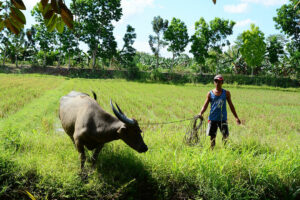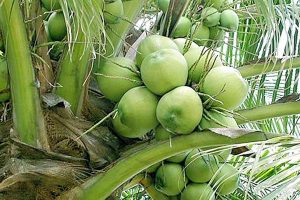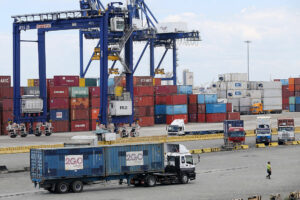New legislators urged to freeze farmland conversions, crop switching

FARMER organizations urged would-be legislators to file measures that would halt the conversion of farmland, citing the need to ensure food security.
Unyon ng mga Manggagawa sa Agrikultura (UMA) proposed that the 20th Congress consider a ban on land conversion by property developers.
“The country is losing precious agricultural land that could otherwise grow food staples like rice and vegetables to real estate projects for subdivisions and golf courses, commercial districts and pseudo-industrial zones,” it said via Viber.
It also called for measures to disincentivize farmers from switching away from staples to “plantation crops” like cavendish banana, pineapple, and oil palm.
“We cannot become food self-sufficient if the state prioritizes global market demand over domestic needs,” it added.
Agrarian reform beneficiaries are often forced to sell their land to developers due to unfavorable farming conditions, farmer organizations have said.
UMA is lobbying for the refiling of a Genuine Agrarian Reform bill, which seeks the distribution of land at no cost to farmer beneficiaries and the creation of cooperatives as vehicles for productivity.
President Ferdinand R. Marcos, Jr. in 2023 signed the New Agrarian Emancipation Act, which aims to condone all loans, including interests, penalties, and surcharges incurred by agrarian reform beneficiaries.
Farmer organizations have lobbied for the insertion of anti-land conversion provisions in a proposed Land Use Act, which was approved by the House of Representatives in 2023. The bill remains pending in the Senate.
UMA said legislators need to arrest the decline in the number of farm workers by improving their working conditions.
“The number of agricultural workers has long been on the decline — not because landless farmers are finally getting land, but because of rural wage discrimination against agri-workers,” it said.
UMA also pushed for the refiling of the proposed Rice Industry Development Act, which it views as an alternative to the Rice Tariffication Law of 2019.
The bill being backed by UMA seeks to increase rice industry productivity on a three-year timetable with funding of about P400 billion.
The allocations include a rice production socialized credit program (P25 billion), an accelerated irrigation development program (P45 billion), a post-harvest facilities development program (P30 billion), a research and development and extension services program (P15 billion, and a procurement program for the National Food Authority (P310 billion).
“The government needs to do more than bring food staples like rice directly to the market; it should also purchase directly from farmers, boxing out middlemen and, in particular, the rice cartel,” UMA said. — Kyle Aristophere T. Atienza




